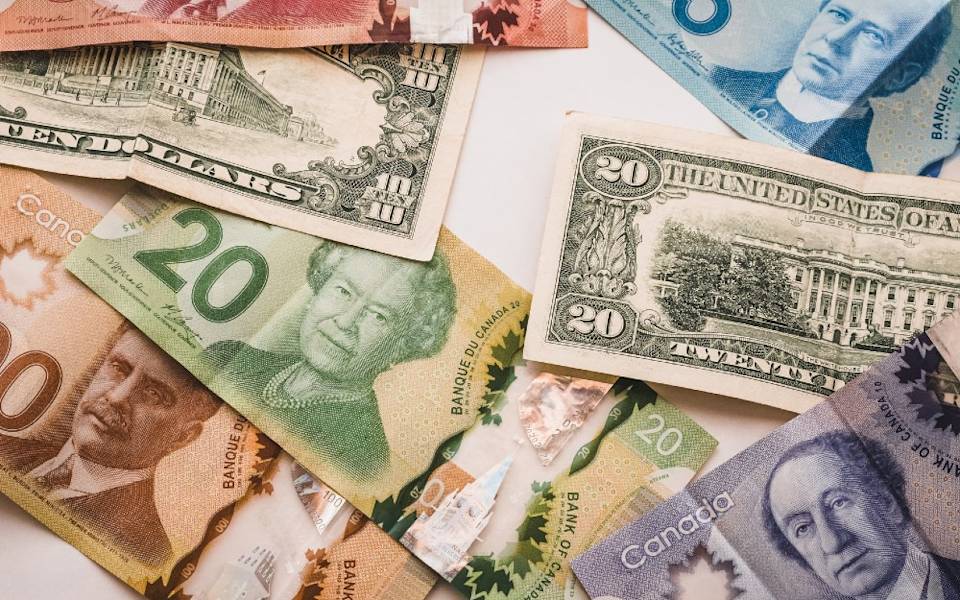CHAPS and BACS payments: what US businesses should know

Evan Dunn
Growth Marketing Lead, US

Technology has made it easier than ever to send money to anyone and anywhere in the world, simply by opening up an app or browser on your phone or computer. This simplifies how US businesses partake in international transactions, oftentimes without even needing to leave the office.
However, there is a difference between paying a friend back for dinner and drinks and transferring large sums of money from a business account.
Bank transfers in the UK require the use of two main payment networks: CHAPS and BACS. Read on to understand the difference between the two and what they can do for your company if you need to make payments overseas from the US.
What is a CHAPS payment?
CHAPS stands for Clearing House Automated Payment System, and is a UK bank-to-bank transfer system that runs through the SWIFT payment network. CHAPS is normally used for one-off, high-value payments that need to be sent as soon as possible (mostly same-day or overnight payments).
These types of payments can include:
Property purchases
Taxes
Vehicle purchases
Although there is no minimum limit on CHAPS payments, they are not typically used for low-value transactions since they can be costly to process. Most CHAPS payments begin at around £10,000 and upwards, with no maximum cap.
CHAPS payments tap into a wide network, with over 30 participating banking institutions and more than 5,000 participating financial institutions across the UK.
What is a BACS payment?
BACS stands for Bankers Automated Clearing Services, and is the transfer method that handles all credit and debit card transactions. BACS is the most common bank transfer method used by UK businesses.
In contrast to CHAPS payments, BACS transactions are usually used for low-value, high-volume transactions, and have a cap at £250,000 per transfer. These transactions also take longer than CHAPS payments.
BACS payments are used for normal, routine payments that you might make every day, including (but not limited to):
Regular bank transfers
Payments to suppliers
Employee wages
Pension payments
The BACS payment system has been used for over 50 years since its establishment in 1968, and is the system many UK businesses have used since their creation.

So, what’s the difference between BACS and CHAPS?
When it comes to figuring out which payment system is best for your business, you have to pinpoint the type of service you’re looking for.
Since CHAPS payments are for high-value, time-sensitive transactions like payments on expensive business assets, you wouldn’t want to use them for everyday, lower-value payments. Many US businesses that have dealings in the UK will use CHAPS for larger payments.
BACS payments are great for routine payments that don’t need a same-day turnaround, such as paying your overseas suppliers in the UK. However, you wouldn’t want to use BACS for high-value, time-sensitive transactions.
Which transfer method is faster?
BACS payments take anywhere from two to three days to complete. If you’re looking to complete a transaction as quickly as possible, this might not be your top choice.
CHAPS payments are lightning-fast in comparison, offering bank-to-bank transfers within hours. You can typically get same-day payment if your CHAPS transfer is made before 5:00 pm that day (depending on whether you choose in-person or online). Otherwise, overnight or next day processing is available.
Which payment method is more expensive?
When it comes to processing fees, BACS payments are the least expensive option. US businesses making payments in the UK using BACS can expect to pay 5-50p per transaction, which is the equivalent to up to 60 cents in USD. Of course, this varies depending on the banking institution.
CHAPS payments are much more expensive. This is because the banking or payment partner is required to pay for access to and maintenance costs for the software and hardware needed to complete your transfer. CHAPS payments can cost anywhere between £25 to £35 per transaction, which equals roughly $35 to $45 in USD. As such, you probably wouldn’t be making these types of transactions frequently unless absolutely necessary.
Airwallex international payments is a faster, cheaper alternative to both of these
Airwallex exists as an alternative to both of these methods.
Our goal is to make it as easy as possible for you to make your payments. Many US businesses need to make payments to overseas vendors and suppliers in the UK, and we don’t think it’s right that you’re charged extra simply for paying your bills.
Airwallex doesn’t charge you any fees for local or international money transfers. No matter the value you’re sending, regardless of the number of payments you’re making, you’re able to transfer money completely free of any fees.
You get practically instantaneous, same-day transfers on all your transactions, too. This is because we use your local payment networks, not the SWIFT network, so your money is received in one business day or less — without the hefty fees.
So if you’re looking to find the best payment method for your business, try Airwallex foreign current accounts instead for a cheaper, faster alternative. Get in touch with us today for a demo, and see how we can help you take the hassle out of making your business payments.
Related article: The ultimate guide to paying overseas vendors

Evan Dunn
Growth Marketing Lead, US
Evan Dunn manages the growth of Airwallex's SMB business in the US through marketing avenues. Evan is a generalist with expertise in SEO, paid media, content marketing, performance marketing and social selling. He also enjoys slam poetry and waffle making.
Posted in:
Online payments

